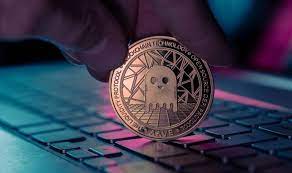Achieving financial freedom is a goal that many aspire to, as it offers a sense of empowerment, security, and flexibility in life. However, attaining true financial freedom requires careful planning, disciplined practices, and a commitment to long-term goals. In this article, we will explore a roadmap to financial freedom, outlining essential steps and strategies that individuals can adopt to pave their way toward economic independence.
1. Set Clear Goals:
- Define your financial objectives, both short-term and long-term. Establishing clear goals will provide direction and motivation for your financial journey.
2. Create a Budget:
- Develop a comprehensive budget that outlines your income, expenses, savings, and investment goals. Tracking your financial inflows and outflows is crucial for effective money management.
3. Reduce Debt:
- Prioritize paying off high-interest debts, such as credit card balances and loans. Reducing debt levels will free up more of your income for savings and investments.
4. Build an Emergency Fund:
- Establish an emergency fund to cover unforeseen expenses, such as medical emergencies or job loss. Aim to save three to six months’ worth of living expenses.
5. Save Consistently:
- Cultivate a habit of regular saving by automating transfers to your savings or investment accounts. Pay yourself first and treat savings as a non-negotiable expense.
6. Invest Wisely:
- Educate yourself about different investment options, such as stocks, bonds, mutual funds, and real estate. Diversify your investments to manage risk and pursue potential returns.
7. Live Below Your Means:
- Practice frugality and avoid unnecessary expenses. Living below your means allows you to allocate more resources toward savings and investments.
8. Increase Income Streams:
- Explore opportunities to diversify your income, such as starting a side business, freelancing, or investing in income-generating assets.
9. Continuous Learning:
- Invest in your knowledge and skills to enhance your earning potential. Lifelong learning can lead to career advancement and increased income.
10. Minimize Lifestyle Inflation: – As your income grows, resist the temptation to inflate your lifestyle. Instead, direct the additional income toward savings and investments.
11. Monitor and Adjust: – Regularly review your financial progress, reassess your goals, and make necessary adjustments to your budget, savings, and investment strategies.
12. Seek Professional Advice: – Consult with financial advisors to receive tailored guidance and expertise on investment opportunities, tax planning, and retirement strategies.
The journey to financial freedom requires patience, discipline, and a willingness to make strategic decisions that align with your goals. By setting a clear roadmap, adopting prudent financial habits, and making informed investment choices, you can progressively build a solid foundation for economic independence. Remember that achieving financial freedom is a gradual process, and the key lies in consistent effort, informed decision-making, and a commitment to your long-term financial well-being. With dedication and perseverance, you can take meaningful steps toward attaining the financial freedom you aspire to.
Escaping the Chains of Modern Slavery: Breaking Free from Exploitative Systems
While the term “slavery” may evoke historical images of a bygone era, modern society continues to grapple with a different kind of bondage – one characterized by economic exploitation, human trafficking, and labor abuses. The modern-day slave system, though less overt, is equally insidious. In this article, we will explore the concept of modern slavery, its various manifestations, and steps individuals and societies can take to escape its clutches.
Understanding Modern Slavery:
1. Economic Exploitation:
- Modern slavery often thrives in industries that rely on cheap labor, where workers are subjected to deplorable conditions, minimal wages, and lack of basic rights.
2. Human Trafficking:
- Victims of human trafficking are forced into labor, domestic servitude, or sexual exploitation against their will, often under threats, deception, or coercion.
3. Debt Bondage:
- Some individuals become trapped in a cycle of debt bondage, where their labor is used to repay debts, leaving them in a perpetual state of servitude.
Escaping Modern Slavery:
1. Awareness and Education:
- Raising awareness about modern slavery and educating communities is essential for recognizing the signs and advocating for change.
2. Support Systems:
- Establishing support networks and organizations that provide resources, legal assistance, and counseling to victims can help them break free from exploitative situations.
3. Empowerment and Education:
- Equipping individuals with skills and education empowers them to seek better opportunities, making them less vulnerable to exploitation.
4. Advocacy and Policy Change:
- Advocating for stricter labor laws, anti-human trafficking measures, and corporate accountability can lead to systemic change.
5. Consumer Awareness:
- Supporting ethical and fair trade products sends a message to industries that consumers demand responsible and humane production practices.
6. Supply Chain Transparency:
- Encouraging companies to ensure transparency in their supply chains helps identify and address instances of labor exploitation.
7. Reporting and Whistleblowing:
- Encouraging reporting of exploitation and offering protection to whistleblowers can help expose and combat modern slavery.
8. International Collaboration:
- Modern slavery is a global issue that requires international cooperation to address trafficking networks and provide support to victims.
Breaking free from the clutches of modern slavery demands collective action, awareness, and a commitment to upholding the dignity and rights of all individuals. By shedding light on the various forms of exploitation, advocating for policy changes, and supporting organizations that fight against modern slavery, we can contribute to dismantling this insidious system and creating a world where every individual enjoys freedom, autonomy, and the right to live a life free from exploitation and oppression. The journey toward liberation is one that requires persistence, compassion, and a shared commitment to building a more just and equitable society for all.




